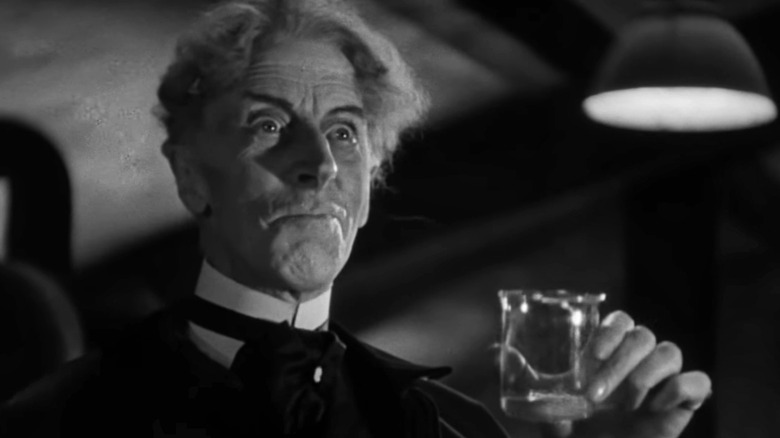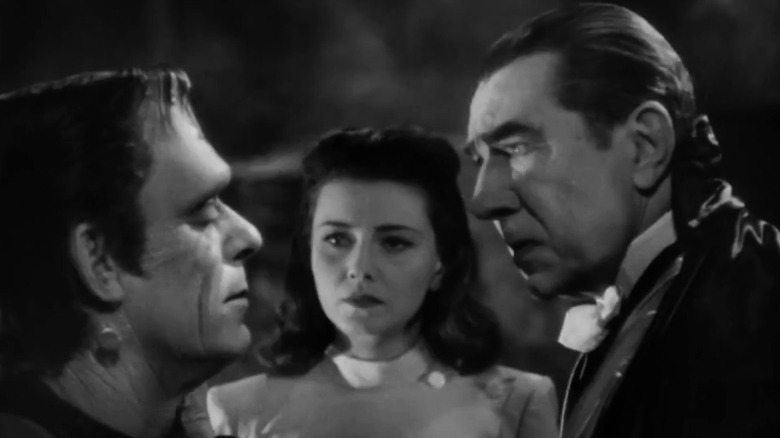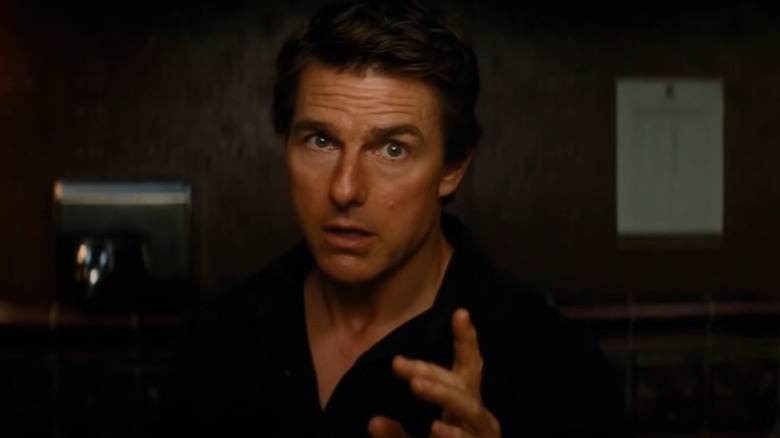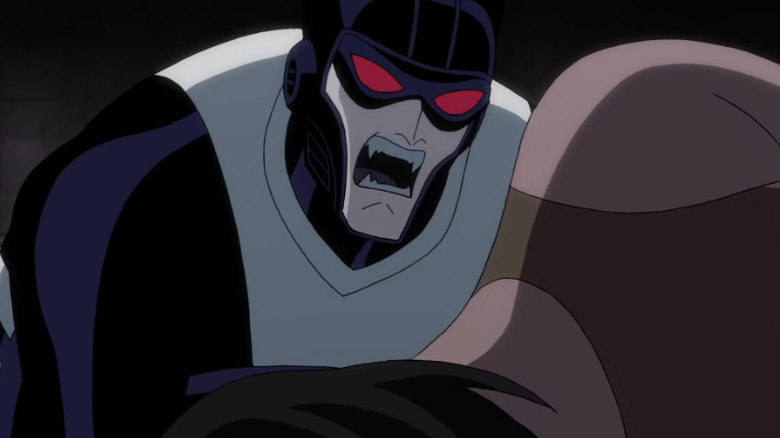The New DC Universe Is Borrowing A Key Phrase From Some Classic Horror Movies
If you were paying attention to James Gunn and Peter Safran's presentation about the future of DC superhero movies, you may have noticed that something sounded familiar.
No, it's not the fact that we're getting new versions of movies we've already seen before, like Superman and Batman and Swamp Thing. And no, we're not even talking about how it's yet another series of gigantic promises about an interconnected universe in a modern pop culture environment that eats almost all of those up and spits them out.
In addition to all the tantalizing, puzzling, and just plain weird news about the future of DC superhero movies, there was also a curious choice for a title. This first chapter of Gunn and Safran's interconnected universe will be called "Gods and Monsters," and that's a very specific title with a very specific history connected to it.
A history that goes all the way back to, arguably, the first interconnected universe in movie history.
The Universal Horror universe
James Gunn isn't just a comic book guy, he's also a horror guy. His film career began in the hallowed halls of Troma, where low-budget, ultraviolent, and super sleazy movies were everybody's bread and butter. After writing the surprisingly good "Tromeo and Juliet," he segued into screenwriting for major studios, concocting the family-friendly "Scooby-Doo" live-action monster movies, Zack Snyder's "Dawn of the Dead" remake, and uncredited rewrites on the William Castle remake, "Thirteen Ghosts."
The odds are extremely slim that Gunn is using the phrase "gods and monsters" without realizing where it comes from. The expression hails from James Whale's iconic horror movie "The Bride of Frankenstein," the eighth film in the classic Universal Horror franchise, and the first of many, many sequels that would be produced by the studio.
Picking up where Whale's original "Frankenstein" left off, "Bride of Frankenstein" finds the Monster (Boris Karloff) returning, becoming more intelligent, and teaming up with the diabolical Dr. Pretorius (Ernest Thesiger) to force Dr. Frankenstein (Colin Clive) to create a companion. At one point Dr. Pretorius proposes a toast to his plan to populate a world with more supernatural creations, led by mad scientists like himself: "To a new world of gods and monsters."
And what a world it was. The success of "Bride of Frankenstein," like the success of Universal's other horror classics, led to multiple sequels for films like "Frankenstein," "The Mummy," and "The Wolf Man," and eventually into proper crossovers. "Frankenstein Meets the Wolf Man," "House of Frankenstein," and even the various Abbott and Costello comedies all found the iconic monsters meeting, fighting, and sometimes joking around.
It's a successful template that Gunn and Safran may be consciously copying. Let's just hope they don't make the same mistake Universal did.
The fall of the Dark Universe
When shared universes like Marvel and DC became popular money-making ventures, other studios decided to follow suit and few were as perfectly situated to formulate their own interconnected franchise as Universal. After all, they practically invented the idea, and they owned all the great movie monsters in their most iconic forms.
Universal had tried and failed to jumpstart their horror franchises before, with the action-horror hybrid "Van Helsing" in 2004, and the historical horror prequel "Dracula Untold" in 2014. Both films underperformed at the box office and failed to launch hit franchises, but that didn't stop Universal, oh no. They not only planned but announced a brand new "Dark Universe" of horror-themed blockbusters in 2017, which would launch with a brand new version of "The Mummy," starring Tom Cruise, followed by films starring Johnny Depp as The Invisible Man, Russell Crowe as Dr. Jekyll (and Mr. Hyde), and Javier Bardem as Frankenstein's Monster.
Despite a massive stable of blockbuster talent, Universal's reboot of "The Mummy" failed to make a major profit, and reviews were mixed, at best, and the whole project fizzled out completely. A lesson was learned that future franchise-runners would be wise to remember: Anyone can announce that they're making a shared universe, but actually making a shared universe that audiences care about is a lot harder.
DC's gods and DC's monsters
The phrase "Gods and Monsters" has been kept alive by horror fans for many years, leading Bill Condon to write an Oscar-winning James Whale biopic under that very title, and Rob Zombie to write a never-produced sci-fi sequel to "The Crow" with the subtitle "A New World of Gods and Monsters." Even DC has used the expression before, in their 2015 Elseworlds animated feature "Justice League: Gods and Monsters."
And now it frankly makes sense. The DC universe is full of literal gods and literal monsters, many of whom are getting their own shows and movies. It's an interconnected franchise where nightmarish creatures like Swamp Thing tromp around with all-powerful do-gooders like Superman, a place where polar opposites attract, repel, and then get coffee together.
Paying homage to the first iconic shared universe places James Gunn and Peter Safran's DC movies in a larger historical context, and implies that they have at least some understanding of what makes these things work. The Universal Horror movies emphasized the character of their central figures, whether they were heroes or villains of both, and created a meaningful link between those superpowered creatures and the audience before shoving them together into monster mash-ups and fight movies. Nobody's going to care if Frankenstein meets the Wolf Man if nobody cares about Frankenstein or the Wolf Man, and that's just as true for superhero movies today.
So let's raise a toast as well, to this new world of gods and monsters. And let's hope the universe they're creating learns the lessons of the past.



